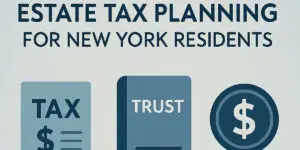Will
A will is a very crucial aspect of an estate plan. It is a legal document that holds information regarding how you want your assets to be distributed. In the will, you are to state the executor of your estate, the beneficiaries including the portion of your asset you want them to inherit, and other crucial information pertaining to your estate. If you care about your burial, you could also state how you wish to be buried in your will.
Not everyone know the relevance of creating an estate plan, which is why several families suffer when the breadwinner dies without an estate plan. One important thing you should know is that, estate planning is more than creating a will. It involves other things. If you die without an estate plan, your assets will be shared based on the intestate law of your state. I bet this is something you will frown at because no one would fancy the idea of the government dictating who gets a portion of your assets and who doesn’t.
After your demise, your will undergoes the probate process. This process is often handled by your estate executor. If peradventure, you didn’t assisgn an estate executor in your will, the probate court will have no choice but to select one. The individual selected by the probate court is usually someone who is close to the family, or the individual who inherits a huge portion of your asset.
Probate Explained
Estate planning is important, but what is more important is to plan an estate that avoids probate. The probate process is stressful, expensive, and can last for a very long time depending on the circumstances surrounding the estate.
People who have undergone this process can testify to the fact that it is a difficult process. Of course, probate can be avoided and one of the ways to avoid it is by creating a trust.
A trust is simply a legal media created by an estate owner and used to transfer assets to a trustee who then keeps them in a trust fund for a third party who is regarded as a beneficiary.
Probate is done to determine the authenticity of a will, to settle all unpaid taxes and due of the estate owner, etc. Without this process, your assets can’t be sold or shared to the designated beneficiaries.
After your demise, the probate process is next. Not all your properties will have to undergo the probate process, some are allowed to escape this tedious process but it depends on the probate law of your state. Take California for instance. In the city of California, you can pass up about $100,000 of property without going through the probate process, and there also exist a very straightforward way to transfer properties left to a living spouse.
After the demise of an estate owner, the designated estate executor will have to file the necessary paperwork to the local probate court to kick-start the probate process which can last for either a year or a few months.
As stated, your estate executor will be the one in charge of the probate process and he or she will have lots of task to execute. If needed, your estate executor can decide to hire a probate attorney to make the job less difficult to him or her. Ensure you think well before selecting an estate executor. If for instance, you select someone who is hated by the family as your estate executor, there may be some misunderstanding. Always go for someone who you can trust, probably someone that everyone respects and look up to.
Probate is usually done to determine the validity of a will and it is the job of the estate executor to prove that the will of the deceased is valid.
Probate Attorney New York City
Because of the complex nature of the probate process, an estate executor will require the services of a probate attorney. If you were selected as the executor of an estate and you need a probate attorney, you can contact us. We have the best probate attorneys who will be willing to guide you through the probate process









